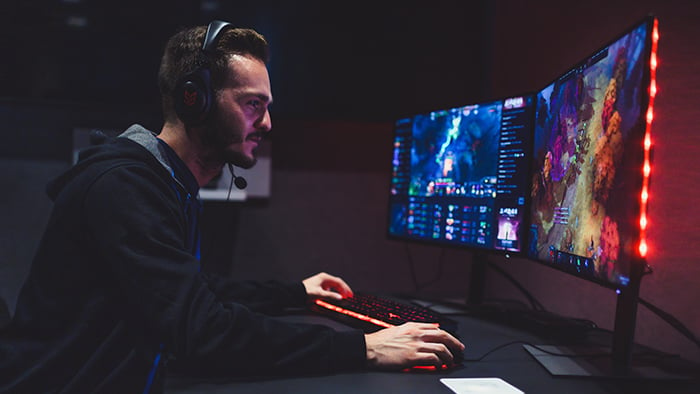
Why is My Laptop So Slow? Transform Your Device’s Performance With These Expert Tips!
Your laptop may be running slow due to various issues such as low memory, software conflicts, or outdated hardware drivers. In today’s fast-paced digital world, it can be frustrating to deal with a slow laptop that hampers productivity and efficiency.
While there could be multiple reasons for its sluggishness, understanding the underlying causes can help resolve the issue promptly. This article explores common culprits behind a slow laptop and provides actionable tips to optimize its performance. By implementing these suggestions, you can potentially restore your laptop’s speed and enjoy a smoother computing experience.
Don’t let a slow laptop hold you back – read on to discover effective solutions to this common problem.
Common Reasons For Laptop Slowdown
Is your laptop running at a snail’s pace? There are several common reasons for this frustrating issue. One possibility is overheating, which can slow down your laptop’s performance. Another culprit could be insufficient storage space, as a nearly full hard drive can cause your laptop to slow down significantly.
Outdated hardware or software can also be a major cause of slowdowns. If you have an older laptop or if you haven’t updated your software in a while, it’s time to consider upgrading or updating. Keeping your laptop running smoothly is essential for productivity, so be proactive in addressing these issues to avoid further frustration.
Regular maintenance and updates can help keep your laptop running efficiently and smoothly. Invest in the necessary upgrades or seek professional help if needed to resolve these common reasons for laptop slowdowns.

Credit: www.countryliving.com
How To Improve Laptop Speed
There are several reasons why your laptop might be running slow. One way to improve its speed is to clean up unnecessary files and programs. This will free up space on your hard drive and help your laptop run more efficiently.
Additionally, consider upgrading your hardware if necessary. This could involve adding more RAM or replacing your hard drive with a faster solid-state drive. Another way to optimize laptop speed is to manage your startup programs. Disable any unnecessary programs from starting up when you turn on your laptop.
By following these tips, you can significantly improve the speed and performance of your laptop.
Expert Tips For Enhancing Laptop Performance
Is your laptop slow and frustrating to use? Enhance its performance with these expert tips. One effective method is to replace your traditional hard drive with a solid-state drive (SSD). This upgrade significantly boosts speed and efficiency. Another crucial step is to keep your operating system and drivers up to date.
Regularly check for updates and install them promptly. Additionally, consider defragmenting your hard drive on a regular basis. This process rearranges files, making access quicker and smoother. Remember, improving laptop performance requires a combination of hardware and software optimizations. Follow these tips, and experience a faster, more efficient laptop that meets your needs.
So say goodbye to the frustration of a slow laptop and enjoy a smoother computing experience today.
Additional Strategies To Speed Up Your Laptop
Is your laptop frustratingly slow? Try these strategies to speed it up. Clear your browser cache and cookies, disable unnecessary startup programs and services, and run a malware scan.
Frequently Asked Questions On Why Is My Laptop So Slow
How Do I Fix Slowness On My Laptop?
To fix slowness on your laptop, close unnecessary programs, delete unused files, run a virus scan, and increase RAM if needed.
Why Is My Laptop So Laggy And Slow?
Your laptop may be laggy and slow due to various reasons, such as insufficient memory, outdated software, or malware infections.
How Do I Clean Up My Laptop To Make It Run Faster?
To clean up your laptop and boost its speed, follow these steps: 1. Uninstall unnecessary programs and files. 2. Run a disk cleanup to remove temporary files and free up space. 3. Disable startup programs that slow down your laptop. 4.
Regularly update your operating system and run antivirus scans to ensure optimal performance.
Why Is My Laptop Running So Slow?
There are several possible reasons for a slow laptop, including too many running programs, outdated software, a full hard drive, or malware infections. It’s important to optimize your laptop’s performance by regularly updating software, running a malware scan, and clearing up space on your hard drive.
Conclusion
To sum it up, a slow laptop can be a frustrating experience, especially when you rely on it for work or personal use. However, there are several potential reasons for this sluggishness. It could be due to outdated hardware, insufficient storage space, an excessive number of background processes, or even malware infections.
By following a few simple steps, you can improve your laptop’s performance significantly. Start by regularly cleaning up unnecessary files, uninstalling unused programs, and updating your operating system and applications. Consider upgrading your RAM or hard drive if necessary. Optimize your laptop’s power settings and disable unnecessary startup processes.
Installing reliable antivirus software and performing regular scans can help protect your device from malware and viruses. Remember, maintaining a healthy laptop requires regular care and attention. By implementing these tips and troubleshooting strategies, you can speed up your laptop and enhance your overall productivity.
So why wait? Take action now and enjoy the smooth performance your laptop deserves.